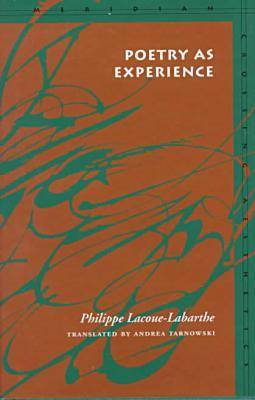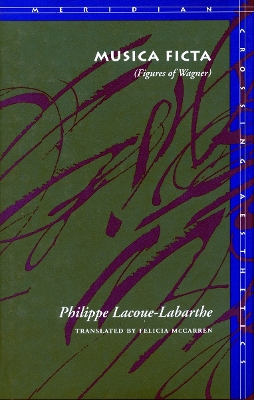Meridian: Crossing Aesthetics
2 total works
For Lacoue-Labarthe, poetry after the Shoah, the poetry of bared singularity, is no longer a poetry that would correspond to the concept of the subject-or, for that matter, to the concept of poetry-but is rather the language of the decept. Only by being disappointed of the heroic language of idealistic poetry, and of the mytho-ontological tendencies of philosophy, can Celan's poetry keep open the possibility of another history, another future.
This is a pioneering attempt to rearticulate the relationship between music and the problems of mimesis, between presentation and re-presentaion. Four "scenes" comprise the book, all four of them responses to Wagner: two by French poets (Baudelaire and Mallarme), two by German philosophers (Heidegger and Adorno).
It is dificult to realize how profoundly Wagner affected the cultural and ideological sensibilities of the nineteenth century. Wagnerism rapidly spread throughout Europe, partly because of Wagner's propagandizing talent and the zeal of his adherents. But the main reason for his ascendance was the sudden appearance of what the century had desperately tried to produce since the beginnings of Romanticism - a work of art on the scale of great Greek and Christian art. At last, here it was: the secret of what Hegel called the "religion of art" rediscovered.
The first two scenes of the book present a historical sequence that is punctuated by the Franco-Prussian War and the Paris Commune, in which the universal unbridling of nations and classes is prefigured. The second two register certain effects of Wagnerism that are not just ideological but make themselves felt in a new political configuration of the "national" and the "social."

